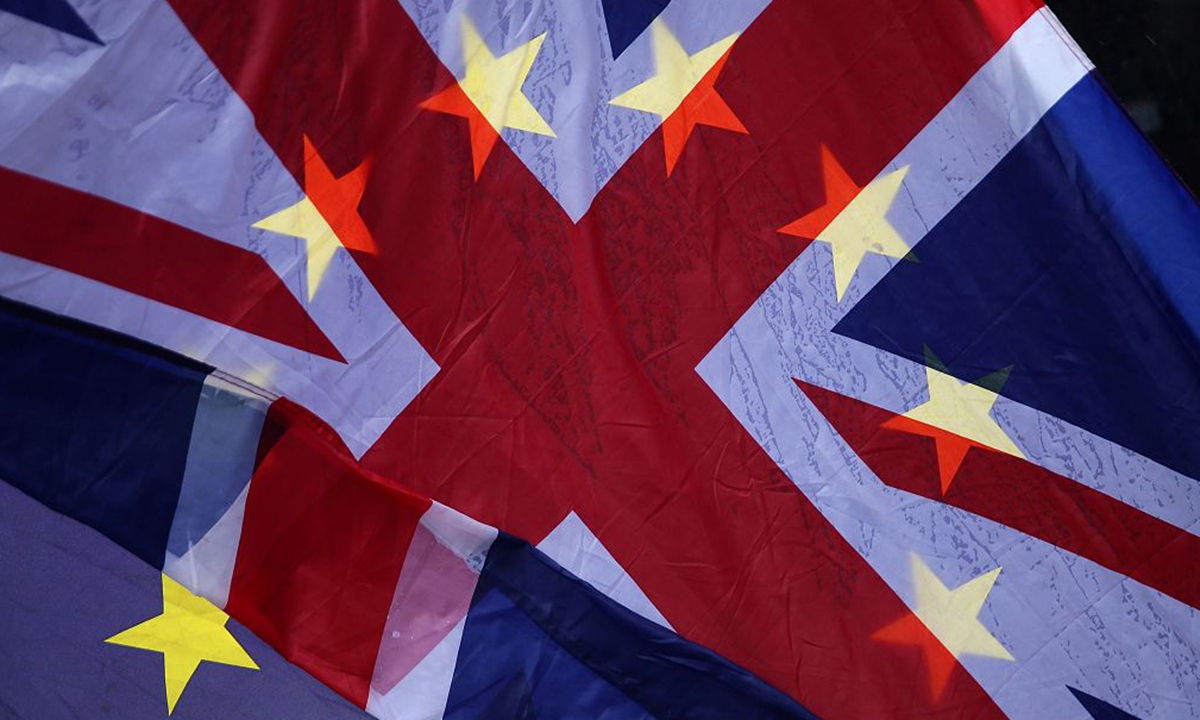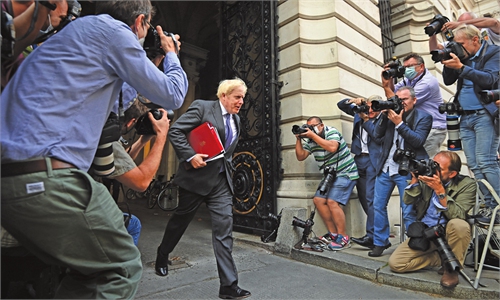
Brexit Photo:VCG
The European Parliament was expected to vote to ratify the EU trade deal with Britain on Tuesday, turning the page on a difficult Brexit chapter but with little hope of smoothing relations with London.
The 705-member Brussels chamber was expected to back the bare bones trade deal that was sealed on Christmas Eve after nine months of bad tempered negotiation.
The zero-tariffs, zero-quotas arrangement has been provisionally applied since January 1 when an eleven-month post-Brexit transition period ended.
But members of the European Parliament demanded extra time to vet the pact, which also includes a deal on fishing that was especially difficult to clinch with EU fishing crews losing much of their access to bountiful UK waters.
The European Parliament delayed its vote in part to protest unilateral delays by London in implementing customs checks in Northern Ireland, one of the most contentious issues in the divorce.
Brussels has launched legal action against London over the problem, while a major row over the supply of UK-based AstraZeneca's COVID-19 vaccine has also embittered cross-Channel relations.
But, despite the acrimony, the European Commission, which handles ties with the UK for the Europeans, has asked MEPs to greenlight the pact.
The UK had made it clear that it would not approve any further delays, exposing the risk of the deal being annulled if the MEPs did not vote by Friday.
"I assume that the agreement will be ratified almost unanimously," said German MEP Bernd Lange, who heads the parliament's trade committee.
But, he added, "as in sailing, I assume that there will not only be good weather but stormy times as well."
The vote was expected to take place on Tuesday evening in Brussels after a five-hour plenary debate. The result, which is not in doubt, will be announced on Wednesday morning.
Britain left the EU on January 30, 2020, but its new life with Europe only really began after the transition period on December 31, when London was no longer bound by the bloc's laws and rules.

